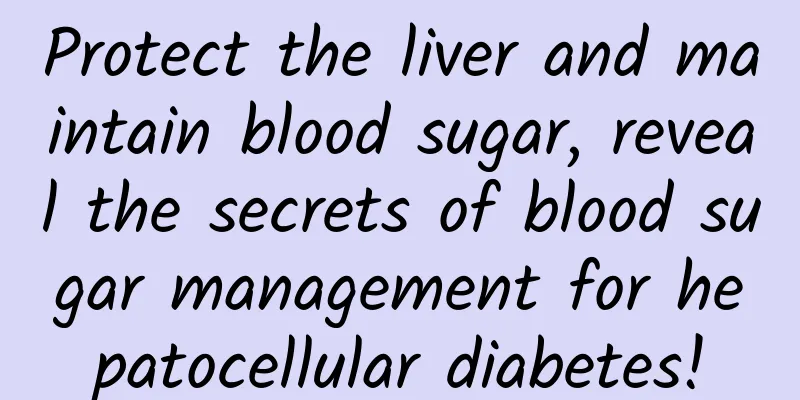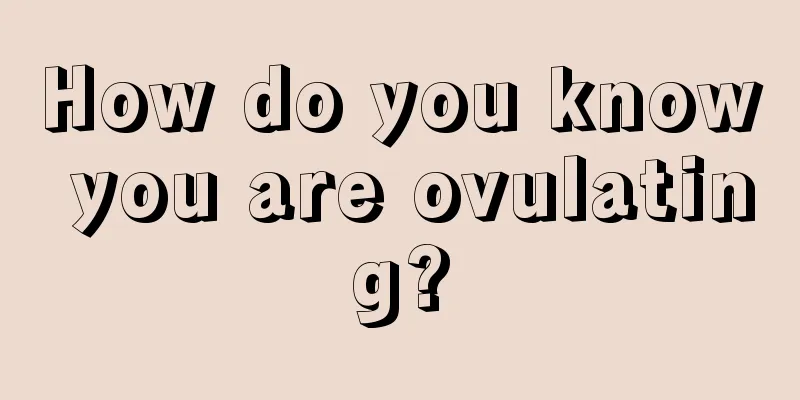Protect the liver and maintain blood sugar, reveal the secrets of blood sugar management for hepatocellular diabetes!

|
Author: Wu Libing, deputy chief physician of the Fifth Medical Center of the General Hospital of the Chinese People's Liberation Army Reviewer: Jin Bo, Chief Physician, Fifth Medical Center, PLA General Hospital Hepatogenic diabetes refers to diabetes secondary to chronic liver damage. The liver plays a key role in maintaining glucose homeostasis in the human body. It stores glycogen when the body is fed and generates glucose through glycogenolysis and gluconeogenesis when the body is fasting. The occurrence of liver disease is closely related to glucose metabolism disorders, so hepatogenic diabetes caused by liver dysfunction and portal hypertension often occurs in patients with cirrhosis. 1. What is the relationship between hepatogenic diabetes and diabetes? Hepatogenic diabetes is a type 2 diabetes, and its treatment and care are roughly the same as those of type 2 diabetes, mainly focusing on lifestyle intervention (diet control, active exercise, weight loss, smoking cessation and alcohol restriction, etc.). If blood sugar continues to rise, it can be treated with hypoglycemic drugs, and if necessary, insulin can be used to control blood sugar. 2. What are the clinical symptoms and signs of patients with hepatogenic diabetes? 1. Hepatogenic diabetes usually has an insidious onset, and the clinical symptoms vary in severity, often consistent with the severity of liver damage. The clinical manifestations are also mainly liver disease symptoms, such as fatigue, loss of appetite, abdominal distension, etc., while symptoms of polydipsia, polyphagia, polyuria, and weight loss are not obvious. 2. Hepatogenic diabetes mostly occurs in middle-aged and elderly men, which may be related to the fact that it is more common in male patients with chronic liver disease. 3. What is the blood sugar level in patients with hepatogenic diabetes? The fasting blood sugar of patients with hepatic diabetes is mostly normal or slightly elevated, with the blood sugar mainly elevated 2 hours after a meal, and glycosuria may occur. 4. What are the causes of hypoglycemia in patients with hepatic diabetes? When patients with hepatic diabetes have extensive liver damage, it may cause liver dysfunction and lead to hypoglycemia. The main reasons include the following. 1. Liver cells are severely damaged and liver glycogen reserves are seriously insufficient, causing fasting hypoglycemia. 2. Abnormal or insufficient glycogen metabolic enzymes, resulting in insufficient glycogen synthesis. 3. Excessive glucose consumption. For example, liver cancer patients have an increased demand for glucose, which leads to increased hepatic glycolysis and a decrease in glycogen. 4. Excessive use of hypoglycemic drugs and too long an interval between the use of hypoglycemic drugs and meals. 5. Fasting or dietary restriction induced by special circumstances, etc. 5. What are the common symptoms of hypoglycemia? How to deal with it urgently and prevent it? 1. Common symptoms of hypoglycemia: palpitations, sweating, hunger, trembling hands, anxiety, irritability, headache, etc. Figure 1 Copyright image, no permission to reprint 2. Emergency treatment plan (two “15s”): Immediately take glucose water or sugary food (15 g of sugar) orally; if conditions permit, monitor blood sugar, wait for 15 minutes, and then move again after symptoms are relieved. Figure 2 Copyright image, no permission to reprint What should be the next step of treatment after 15 minutes? (1) Blood glucose ≥3.9 mmol/L, symptoms improved, eat at normal times or have extra meals. (2) If blood glucose is ≤3.9 mmol/L or symptoms do not improve, repeat the two “15” steps. (3) If blood sugar remains low or if unconsciousness occurs, seek medical attention immediately. 3. Prevent hypoglycemia (1) Develop good living habits, including taking medication on time, eating regularly, combining work and rest, and quitting smoking and drinking. Figure 3 Copyright image, no permission to reprint (2) Set reasonable blood sugar control goals. (3) Strengthen blood sugar monitoring. If blood sugar before bedtime is ≤5.6 mmol/L, it is recommended to have a snack or drink a glass of milk to prevent nocturnal hypoglycemia. (4) Carry food to prevent hypoglycemia (such as candy, juice, biscuits) and a diabetes emergency card with you. |
<<: Two or three things about gout
>>: Should I have hip replacement surgery?
Recommend
Can pregnant women use iodine to disinfect wounds?
After pregnancy, pregnant women need to pay atten...
What if my period comes back ten days after my period?
I often hear girls discussing their irregular men...
Can I use ultrasonic knife during menstruation?
In order to make themselves look younger, many wo...
How to improve endocrine disorders and what to eat for endocrine disorders?
How to improve endocrine disorders? Develop good ...
The difference between premenstrual period and early pregnancy
After a woman becomes pregnant, some changes will...
Gynecological diseases can be transmitted through quilts
Many women in daily life often suffer from gyneco...
Is pigmentation a spot?
Melanin deposition refers to endocrine imbalance ...
In fact, nausea and vomiting caused by chemotherapy is controllable and preventable - scientific "anti-vomiting", pharmacists give advice
This is the 4156th article of Da Yi Xiao Hu Clini...
What to do if flour ferments slowly in winter? What to do if flour ferments slowly in winter?
We all know that many people usually ferment flou...
What if my period comes a week early?
Early onset of menstruation is one of the symptom...
A picture of a woman with a mole on her left hand
A mole is like a naughty and disobedient child. I...
What causes sagging breasts?
Breasts and ovaries are both reproductive organs ...
What is a lump in the breast? What is a lump in the breast?
The breast is also an important reproductive orga...
What to do if your menstrual flow is light at 39
Women's physical condition will begin to decl...
Will hot spring bathing delay menstruation?
Menstruation is a very important thing for women....









